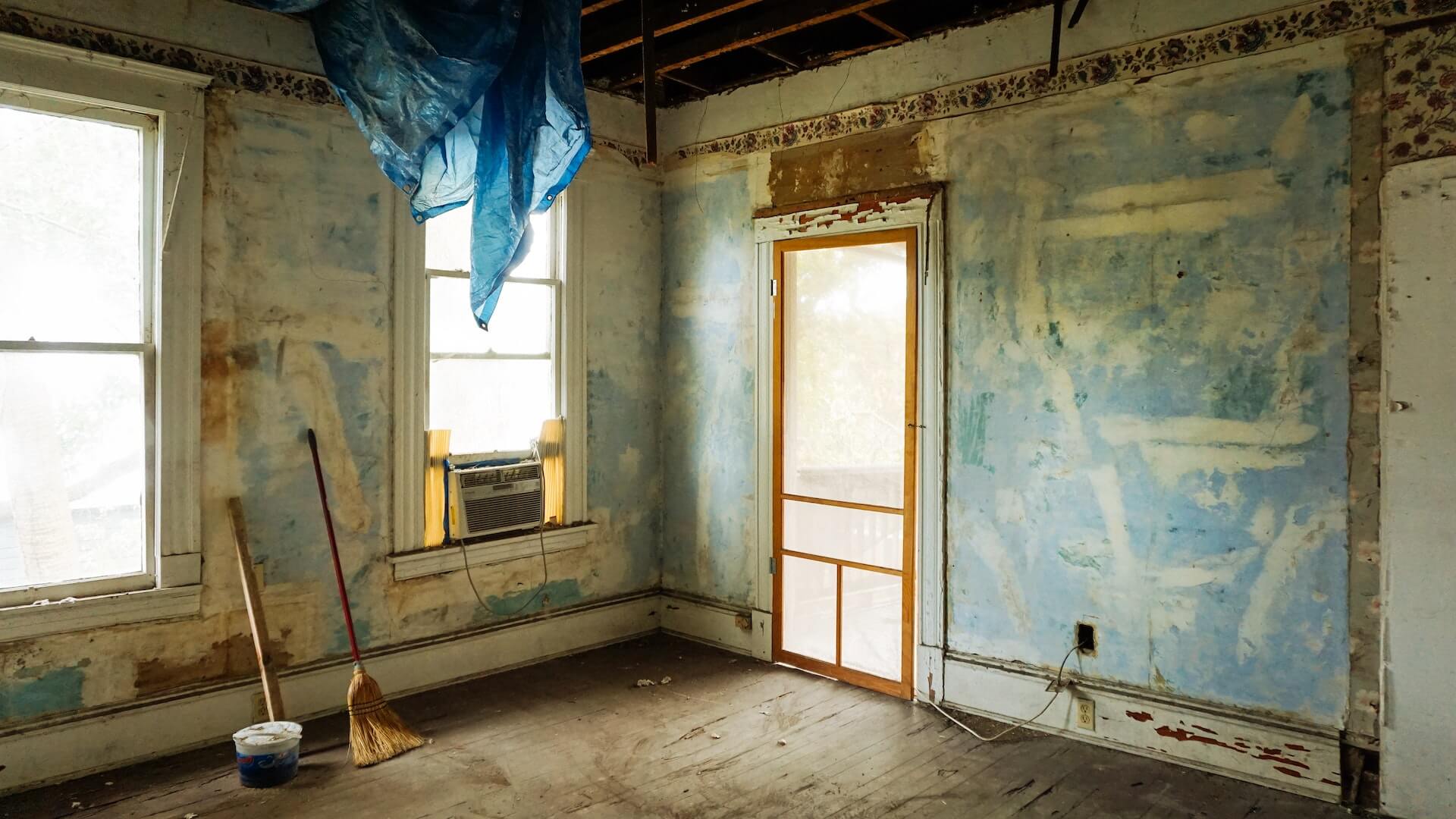House flipping has become a popular investment strategy for many people looking to make a quick profit. However, flipping a house can be a complicated and time-consuming process, and many first-timers find themselves struggling to make their investment pay off. This is why we’ve put together the ultimate guide to successful house flipping. In this post, we’ll provide you with tips, tricks, and strategies to help you navigate the world of house flipping and make the most out of your investment. From finding the right property and creating a renovation plan to maximizing your profits and avoiding common mistakes, we’ve got you covered. Whether you’re a seasoned real estate investor or new to the game, our guide will provide you with everything you need to know to make your house flipping venture a success.
Introduction: The lucrative world of house flipping
House flipping has become a popular venture in the world of real estate investing. It involves purchasing a property, renovating it, and then selling it for a profit. This exciting and dynamic industry has attracted many individuals looking to make substantial returns on their investments.

The allure of house flipping lies in its potential for high profits. By purchasing distressed properties at a lower price, investors can capitalize on the opportunity to increase the property’s value through strategic renovations and improvements. When done right, house flipping can yield significant returns in a relatively short period.
However, it is essential to approach house flipping with a well-thought-out plan and a comprehensive understanding of the market. This guide aims to provide you with valuable tips, tricks, and strategies to navigate the world of house flipping successfully.
Whether you are a seasoned investor or a beginner looking to dip your toes into this exciting venture, this guide will equip you with the knowledge and insights needed to make informed decisions throughout the house flipping process. From finding the right property to managing the renovation costs and marketing the finished product, we will cover all aspects of house flipping to help you maximize your profits.
Finding the right properties: How to identify potential investment opportunities
Finding the right properties is a critical step in successful house flipping. Identifying potential investment opportunities requires a keen eye and a strategic approach. Here are some tips and tricks to help you in your search:
1. Research local real estate market:
Start by understanding the current trends and dynamics of the real estate market in the area you are targeting. Look at factors such as property values, market demand, and potential for growth. This will give you a better understanding of the investment potential in different neighborhoods.
2. Define your investment criteria:
Determine your investment criteria based on factors such as budget, desired profit margins, location preferences, property size, and condition. Having a clear set of criteria will help you narrow down your search and focus on properties that align with your goals.
3. Network with real estate professionals:
Build relationships with real estate agents, brokers, and other industry professionals who specialize in the local market. They can provide valuable insights, access to off-market properties, and help you stay informed about upcoming opportunities.
4. Utilize online resources:
Take advantage of various online platforms and tools that can assist you in finding potential investment properties. Websites like Zillow, Realtor.com, and Redfin provide comprehensive listings and search filters to help you identify properties that meet your criteria. Additionally, consider joining real estate forums and online communities where investors share their experiences and tips.
5. Attend local auctions and foreclosure sales:
Keep an eye out for local auctions and foreclosure sales. These can be excellent sources for finding distressed properties or those being sold at below-market prices. However, ensure you thoroughly research and understand the risks associated with these types of purchases.
6. Drive around neighborhoods:
Sometimes, the best opportunities are found by simply driving around neighborhoods and looking for properties with visible signs of neglect or disrepair. These properties may not be listed on any websites or in the market yet, giving you a competitive advantage.
7. Consider partnering with wholesalers:
Wholesalers specialize in finding off-market properties and often have a network of distressed property owners looking to sell quickly. Partnering with a reputable wholesaler can give you access to a steady stream of potential investment opportunities.
Crunching the numbers: Analyzing the profitability of a potential flip
When it comes to house flipping, one of the most crucial steps is crunching the numbers and analyzing the profitability of a potential flip. This step is essential in determining whether a property has the potential to yield a significant return on investment.
First and foremost, it’s important to calculate the purchase price of the property. This includes not only the cost of acquiring the house but also any additional expenses such as closing costs, real estate agent fees, and legal fees. It’s crucial to have a clear understanding of the total investment required.
Next, you need to estimate the cost of renovations and repairs. This involves thoroughly inspecting the property and creating a detailed list of necessary repairs and upgrades. Obtaining quotes from contractors or construction professionals can help you arrive at a realistic estimate.
In addition to renovation costs, it’s important to consider other expenses such as permits, insurance, property taxes, and utility bills during the renovation process. These costs can add up quickly and can significantly impact your overall profitability.
Once you have calculated the total investment, it’s time to estimate the potential selling price of the flipped property. This requires conducting thorough market research and studying comparable properties in the area. Look for recent sales of similar properties and take into account any unique features or upgrades that your property will offer.
To determine the potential profit, subtract the total investment from the estimated selling price. This will give you an idea of the profit margin and whether the flip is financially viable. It’s important to leave some room for unexpected expenses and contingencies, as unforeseen issues can arise during the renovation process.
Additionally, consider the timeframe for the flip. Holding costs such as mortgage payments, property taxes, and utilities can eat into your profit if the property takes longer to sell than anticipated. It’s crucial to have a realistic timeline in mind and factor in any holding costs accordingly.
Financing options: Exploring different ways to fund your house flipping projects
There are several avenues you can explore to fund your house flipping projects, and choosing the right one for your specific situation can make all the difference in your success.

One common financing option is traditional bank loans. These loans typically require a good credit score and a solid financial history. While they may offer lower interest rates, the application process can be lengthy and require extensive documentation. However, if you have a strong financial profile and a proven track record in house flipping, traditional bank loans can be a viable option.
Another option to consider is private money lenders or hard money loans. These are typically individuals or companies that specialize in providing short-term loans specifically for real estate investment projects. While the interest rates on hard money loans may be higher than traditional bank loans, they often have less stringent requirements and can provide faster approval and funding.
If you have a network of investors or partners, joint ventures or partnerships can be an attractive financing option. By pooling resources and expertise, you can take on larger projects and mitigate some of the financial risks. Joint ventures can be structured in various ways, such as profit sharing or equity partnerships, depending on the agreement between parties involved.
Additionally, crowdfunding has gained popularity as a financing option for real estate projects, including house flipping. Through online platforms, you can pitch your project to a large pool of potential investors who can contribute smaller amounts to collectively fund your venture. This can be a great way to access capital from a wider audience and gain exposure for your project.
Lastly, don’t overlook the potential of utilizing your own savings or home equity. If you have personal funds or equity built up in other properties, you can leverage these assets to fund your house flipping projects. This can provide more flexibility and control over the financing terms.
Assembling a winning team: Finding reliable contractors, real estate agents, and other professionals
Flipping a house requires a diverse set of skills and expertise, and relying on a team of professionals can make the process much smoother and more efficient.
First and foremost, finding reliable contractors is essential. Look for contractors who specialize in the type of renovations you’ll be undertaking. Seek recommendations from trusted sources, such as fellow investors or local real estate associations. It’s crucial to thoroughly vet potential contractors, checking their credentials, past work, and client reviews. Building a strong relationship with reliable contractors can save you time, money, and headaches in the long run.
In addition to contractors, having a trustworthy real estate agent on your team is invaluable. A knowledgeable agent can help you find potential properties, negotiate deals, and provide insights into the local market. Look for an agent who has experience with house flipping and a track record of successful transactions. Regular communication and a clear understanding of your goals are key to a productive partnership with your real estate agent.
Other professionals that you may need to include in your team are home inspectors, appraisers, and attorneys. A thorough home inspection can uncover potential issues that may affect your renovation plans, while an appraiser can provide accurate valuations to ensure you’re making sound financial decisions. Additionally, having an attorney who specializes in real estate can provide legal guidance, review contracts, and protect your interests throughout the flipping process.
The art of renovation: Tips for maximizing the value of your flipped property
A well-executed renovation can not only attract potential buyers but also significantly increase the selling price. Here are some tips to help you make the most out of your renovation:

1. Plan strategically:
Before diving into any renovations, create a detailed plan outlining the scope of work, budget, and timeline. Consider the target market and neighborhood trends to make informed decisions about the types of renovations that will add the most value.
2. Focus on curb appeal:
First impressions matter, so allocate a portion of your budget to enhance the property’s exterior. This could involve landscaping, fresh paint, a new front door, or updated windows. A visually appealing and well-maintained exterior will immediately capture the attention of potential buyers.
3. Kitchen and bathroom upgrades:
These are often the areas that can make or break a sale. Invest in high-quality materials and fixtures that will give these spaces a modern and appealing look. Consider upgrading countertops, cabinets, appliances, and lighting fixtures to create a fresh and inviting atmosphere.
4. Open up the space:
Today’s buyers are often drawn to open floor plans that promote a sense of spaciousness. If possible, remove unnecessary walls or partitions to create a more open and flexible layout. This can make the property feel larger and more modern, increasing its overall value.
5. Pay attention to details:
Small details can make a big difference in the overall impression of a property. Ensure that all finishes, such as flooring, paint, and hardware, are cohesive and of high quality. Pay attention to lighting, as well-placed fixtures can create a warm and inviting ambiance.
6. Energy-efficient upgrades:
As sustainability becomes increasingly important, incorporating energy-efficient features into your renovation can be a selling point. Consider installing energy-efficient appliances, insulation, windows, and LED lighting. Not only will this appeal to environmentally conscious buyers, but it can also result in long-term cost savings.
Marketing and selling: Strategies to attract buyers and sell your property quickly
After all, you want to maximize your profits and minimize the time your property sits on the market. To achieve this, you need effective marketing strategies that will attract potential buyers and create a sense of urgency to seal the deal.
One of the first things you should do is invest in professional photography and staging. High-quality photos showcasing the best features of your property can make a significant difference in attracting buyers online. Stage the house to create a welcoming and appealing atmosphere that will help buyers envision themselves living in the space. Remember, first impressions are vital in the real estate market.
Next, utilize online platforms and listing websites to reach a wide range of potential buyers. Consider using real estate websites, social media platforms, and online classifieds to promote your property. Craft compelling descriptions that highlight the unique selling points and key features of the house. Include high-resolution images and even virtual tours if possible to engage buyers and generate more interest.
In addition to online marketing, don’t underestimate the power of traditional marketing methods. Print flyers, brochures, and signage can still be effective in attracting local buyers. Place eye-catching signs in front of the property and distribute flyers in the surrounding neighborhood and local businesses. This can help generate word-of-mouth referrals and create a buzz around your property.
Another strategy to consider is hosting open houses and private showings. This allows potential buyers to physically experience the property, ask questions, and visualize themselves living there. Ensure the house is impeccably clean and well-maintained during these showings to leave a lasting positive impression.
Lastly, pricing your property competitively is key to attracting buyers and selling quickly. Research the local market and comparable properties to determine a fair and appealing price. Be realistic and flexible, considering any necessary repairs or renovations that potential buyers may need to factor in.
Overcoming common challenges: Dealing with unexpected issues and setbacks
Every house flipper will inevitably encounter unexpected issues and setbacks along the way. However, it’s how you handle these challenges that sets successful flippers apart from the rest.
One of the most common challenges in house flipping is encountering unexpected repairs or renovations. It’s important to budget for unforeseen expenses and have a contingency plan in place. Conduct a thorough inspection before purchasing a property to identify any potential issues. This way, you can factor in the cost of repairs or renovations into your budget and avoid unpleasant surprises later on.
Another common setback in house flipping is encountering delays in the construction process. Whether it’s due to bad weather, contractor availability, or permit issues, delays can eat into your timeline and potentially increase holding costs. To overcome this challenge, it’s crucial to have open communication with contractors and establish realistic timelines. Plan for potential delays by padding your schedule, so you have some wiggle room if unexpected issues arise.
Financing can also be a significant hurdle for house flippers. Obtaining loans or securing funding for your projects may require careful planning and strategic approaches. It’s essential to have a solid financial plan in place, including a detailed budget and a well-researched market analysis. Show lenders that you have a clear understanding of the potential returns on your investment and a solid exit strategy.
Dealing with unexpected issues and setbacks requires flexibility, problem-solving skills, and the ability to adapt. It’s important to stay calm and focused during challenging times, keeping your end goal in mind. Surround yourself with a reliable team of professionals, including contractors, real estate agents, and lawyers, who can offer guidance and support when facing unexpected hurdles.
Scaling your house flipping business: Growing your portfolio and increasing profits
As you gain experience and confidence in the house flipping market, it’s time to expand your portfolio and take on more projects.

One effective strategy for scaling your business is to focus on finding reliable sources for financing. Building relationships with lenders, private investors, or even forming partnerships can provide you with the necessary capital to take on multiple projects simultaneously. This will allow you to increase your flipping activity and maximize your profits.
Another important aspect of scaling your business is to streamline your processes and operations. Evaluate your current workflows and identify areas where you can optimize efficiency. This could involve hiring additional team members, outsourcing certain tasks, or investing in technology and software that can automate and simplify your processes.
Networking and building connections within the real estate industry is also crucial for scaling your house flipping business. Attend industry events, join real estate investment groups, and establish relationships with other professionals such as real estate agents, contractors, and suppliers. These connections can provide valuable opportunities for collaboration, finding new deals, and accessing resources that can help you grow your portfolio.
Additionally, continuously educating yourself and staying up-to-date with market trends and strategies is essential for scaling your house flipping business. Attend seminars, workshops, and conferences related to real estate investing, read books and articles, and follow influential figures in the industry. This will allow you to adapt to changing market conditions and stay ahead of the competition.
Conclusion
House flipping can be a lucrative venture if done right, and we’ve provided you with a comprehensive roadmap to ensure your success. From finding the right property to implementing effective strategies and tricks, we’ve covered it all. Now it’s time to put your newfound knowledge into action and start flipping houses like a pro. Good luck on your house flipping journey, and may your profits be plentiful!



